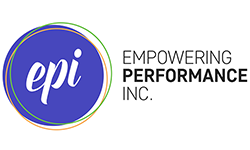Weeding Out the Clutter
Most of us at EPI are gardeners, of varying levels of skill and commitment. We share stories and photos of our individual successes and failures. As you might expect, weeding often falls into the failure category, certainly in terms of commitment. And as I was weeding my vegetable garden recently – a chore I’m not overly fond of or committed to – a few parallels struck me.
Weeds are like clutter. At home, at work, physically, digitally, mentally . . . clutter gets out of hand before we know it.
When we ignore clutter, like a weed it can eventually choke out the good stuff: the flowers, the vegetables—and the important work.
And both too many weeds and too much clutter can sap our motivation and energy.
To get rid of a weed, occasionally it just takes a quick tug to pull up a shallow root. But sometimes you’ve got to dig deep. You see where I’m going with this. Quick fixes do happen, but they’re rare.
The bottom line is: If you want a well-functioning garden, you have to put in the effort and the time.
We’ve been doing some much-needed weeding at EPI. Cleaning out our overcrowded server by archiving files we need and getting rid of ones we don’t. Streamlining some of our instructor-led modules to give participants an experience more suited to their circumstances. And cleaning up our elearning courses to accommodate changing technology. All in all, we’re making room for the new, ensuring that we—and our clients—are set up for success.
So, what can you do?
There’s a lot of information out there on ways to declutter. Chances are you’ve heard of tidying-up expert Marie Kondo and her Kon Mari method. Some of her rules include tidying by category (not location) and asking yourself if something sparks joy.
While joy may not be the best gauge for cleaning up work clutter, I do find the category/not location tip helpful whether I’m clearing out closets or computer files. And I’m inspired by Gretchen Rubin’s book Outer Order, Inner Calm and her idea that “what we do every day matters more than what we do once in a while.” Also, The Minimalists have some good tips on decluttering, my favorite of which is “Question.” Find out how and why your unique life will be better if you declutter with purpose.
Keep in mind that it’s not just physical clutter that can become overwhelming. Research suggests that digital clutter is as stressful as physical clutter. And we all fall prey to obsessing over our own mental clutter.
Now, we’re not trying to clutter shame ourselves or you here. Decluttering has its detractors. In fact, economist and journalist Tim Harford argues in Messy that we focus on the purging/decluttering trend to our detriment. Because messiness inspires creativity and improvisation, and fosters resilience and collaboration. (And he gives some compelling examples.)
But, let’s face it, if you feel like you’re in the weeds, it’s time to do some weeding.
Michelle Kelly, CEO (Chief Enjoyment Officer)


